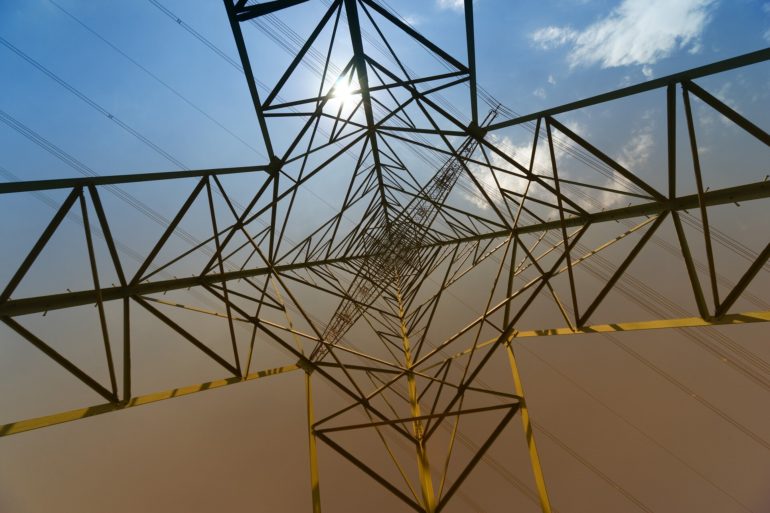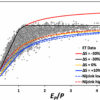People tend to conform to what others do and what others regard as right. Do these two social norms influence electric energy consumption? In the prestigious journal Nature Energy, a team of Italian scientists have identified, for the first time, how these norms interact and influence the energy use of hundreds of thousands of Italian households.
The research method used is the same as that employed in the testing of drugs for medicine. This means applying randomization methods in the analysis of electric energy consumption in households. A randomly selected sample group, made up of hundreds of thousands of people that are all clients of the same Italian company Eni gas e luce, were sent a document containing a comparison of their energy consumption with that of other households, with positive messages aimed at those that were more efficient. In what ways did people assimilate this information and consequently change their behavior and energy consumption?
This is the question that lies at the heart of the research conducted by the Italian team from the RFF CMCC European Institute on Economics and the Environment (EIEE), composed of Jacopo Bonan, Cristina Cattaneo, Giovanna d’Adda and Massimo Tavoni, and published in the latest edition of the prestigious Nature Energy journal with the title “The interaction of descriptive and injunctive social norms in promoting energy conservation.”
The results obtained from the study outline how a variation in the contents of the document sent to the sample group influenced their energy consumption. For example, the less efficient clients discovered through these documents that they were consuming more than other similar households, and that efficiency was a prized attribute. These clients, that were shown consistent social norms, then went on to have the largest decrease in energy consumption after receiving the document.
To the contrary, the document received by the more efficient households, on top of approval for having saved on energy also revealed that conforming to the behavior of other families would have meant increasing their energy consumption. This led the more efficient clients to have a smaller decrease in energy use in response to the document, as the two social norms were in contrast with each other. A detailed analysis was able to distinguish and isolate the impact of the specific contents of the document from that of the characteristics of individual clients, particularly with regards to initial consumption.
The results demonstrate a synergy between different types of social norms: the people that most reduced their consumption were those that, from the information received, understood that they were using more electric energy than their neighbors, and at the same time learnt that less consumption of energy is a socially recognized value.
Another important result that emerges from the study, exemplified by the virtuous client, reveals the hidden risks of messages that are based on social norms and how they can become ineffective if they contain contrasting messages. In fact, these clients learnt that energy conservation is a valued social norm but at the same time discovered that the behavior of their neighbors didn’t reflect this value. To induce the virtuous clients to further reduce their consumption it was therefore necessary to strengthen the message in favor of energy efficiency.
The authors explain that the results of the study contain important lessons for the realization of information campaigns that aim to maximize behavioral change. Areas in which these could be applied effectively include tax evasion, philanthropy or the use of water resources. In all these cases the Italian team’s research has a high scientific relevance. It is an innovative study not only in the application of methods, theories and competences of behavioral science to research on energy, but also in its engagement with energy providers that took an active role in the research efforts. Public and private policymakers in the energy sector are therefore among the parties interested in understanding how messages and information can contribute to change the behavior and consumption patterns of people.
This level of innovation and multidisciplinarity, that brings together experts in energy technology and behavioral science, is one of the characteristics that defines the RFF CMCC European Institute on Economics and the Environment (EIEE). Born from a collaboration between the CMCC Foundation and the US based think tank RFF, this institution combines different competences in the study of environmental economics in support of sustainable development.
Knowing your neighbor cares about the environment encourages people to use less energy
More information:
Jacopo Bonan et al, The interaction of descriptive and injunctive social norms in promoting energy conservation, Nature Energy (2020). DOI: 10.1038/s41560-020-00719-z
Provided by
CMCC Foundation – Euro-Mediterranean Center on Climate Change
Citation:
The influence of social norms and behaviour on energy use (2020, November 2)
retrieved 2 November 2020
from https://techxplore.com/news/2020-11-social-norms-behaviour-energy.html
This document is subject to copyright. Apart from any fair dealing for the purpose of private study or research, no
part may be reproduced without the written permission. The content is provided for information purposes only.



